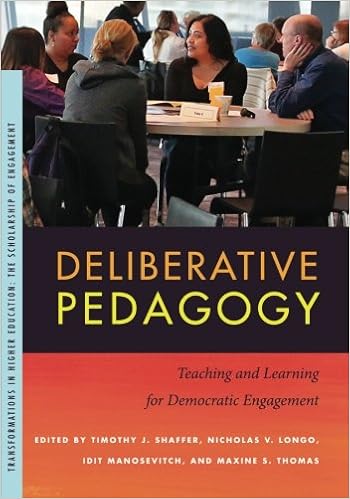The NCDD network specializes in structures and processes for better civic engagement, which is why we wanted to share an insightful piece written by Matt Leighninger from Public Agenda, an NCDD member org. In the article, he gives concrete ways to improve politics from the ground up, by strengthening networks using both thin and thick ways of engagement. We encourage you to read Leighninger’s article below or find the original on Public Agenda’s blog here.
Fixing Politics by Strengthening Networks for Engagement
![]() As David Brooks pointed out in his column on “How to Fix Politics,” our political system has reached a perilous state of dysfunction and distrust, and it is unlikely that any solutions to this crisis will come from the political parties or their presidential candidates.
As David Brooks pointed out in his column on “How to Fix Politics,” our political system has reached a perilous state of dysfunction and distrust, and it is unlikely that any solutions to this crisis will come from the political parties or their presidential candidates.
Brooks is also right that the partisanship and incivility that plague our politics are not just due to poor manners or bad process skills. They are based in much deeper structural flaws in how leaders and communities engage each other around important issues and resulting strains in the relationship between citizens and government.
Brooks argues that strong community networks are essential for successful politics, and uses a 1981 quote from one of our founders, Daniel Yankelovich, to illustrate how long the weakening of those networks has been going on. “If we’re going to salvage our politics,” Brooks says, we’ll have to “nurture the thick local membership web that politics rests within.”
This kind of argument is often dismissed as a sentimental notion, or a lament over our lack of civic virtue, but it shouldn’t be. There are specific proposals and measures that can accomplish it.
Strengthening networks for engagement should be one of our top public priorities, and there are in fact a number of concrete ways to move forward on it. Much of our work at Public Agenda centers on these challenges, and we are part of a field of other organizations and leaders – from neighborhood organizers to innovative public officials – who have pioneered more productive formats and structures for democratic politics.
There are two kinds of communication that need to be happening for those networks to strengthen and grow. One kind, as Brooks references, is “thick” engagement that is intensive, informed and deliberative. In these kinds of settings, people are able to share their experiences, learn more about public problems, consider a range of solutions or policy options and decide how they want to act.
Other tactics produce “thin” engagement, which is faster, easier and potentially viral. It encompasses a range of activities that allow people to express their opinions, learn about other people’s views and affiliate themselves with a particular group or cause.
When thick and thin engagement activities are common and interwoven in community life, they can:
- Facilitate faster, more far-reaching dissemination of information from governments, school systems and other public bodies.
- Allow citizens to provide information back to the institutions, in ways that are convenient for people.
- Foster discussion and connection, and the strengthening of personal relationships, among different groups of citizens, and among citizens, public officials and public employees.
- Provide choices for people to make at the level of the family and neighborhood;
- Create deliberative processes in which people can make informed public policy choices;
- Encourage and support citizens to contribute their energy, ideas and volunteer time to improving their communities.
By understanding what thick and thin engagement look like, and what they can accomplish, communities can assess and improve their systems of engagement, or “civic infrastructure,” defined as “the laws, processes, institutions, and associations that support regular opportunities for people to connect with each other, solve problems, make decisions and celebrate community.”
Stronger civic infrastructure could include more productive and participatory public meetings, revitalized neighborhood and school associations, and vibrant local online forums. Overall, it should establish a better “ground floor of democracy” that fosters new leaders, creates social connections and helps people work together on common concerns like ensuring public safety and improving the quality of education for our young people.
The structural elements that support these activities can include:
- new laws and ordinances on public engagement;
- tools for engaging residents for neighborhoods and schools;
- annual participatory budgeting processes;
- public engagement commissions;
- tools for measuring engagement and the strength of networks;
- citizen advisory boards that engage rather than just trying to represent residents; and
- protocols, job descriptions and professional development that help public employees understand how to support productive engagement.
While some of these elements are clearly the province of governments and school systems, many other components are ones that should be supported by neighborhood groups, nonprofits, businesses, faith communities, universities, foundations and other stakeholders.
David Brooks is right that strengthening the web of community networks can help fix politics, at every level of government. There are practical ways to do this – this is a matter for policy, law, cross-sector collaboration, and long-term planning. We should be proactive, and think constructively, about how we want our democracy to work.
You can find the original version of this article on Public Agenda’s blog at www.publicagenda.org/blogs/fixing-politics-by-strengthening-networks-for-engagement.








